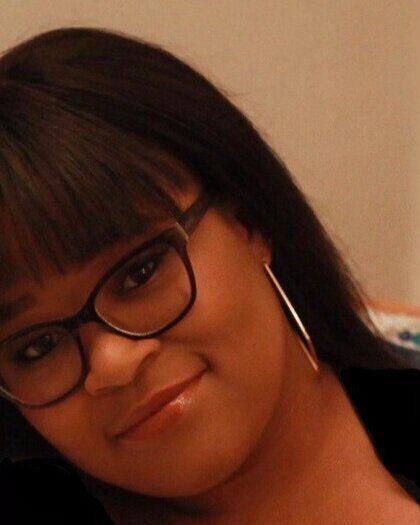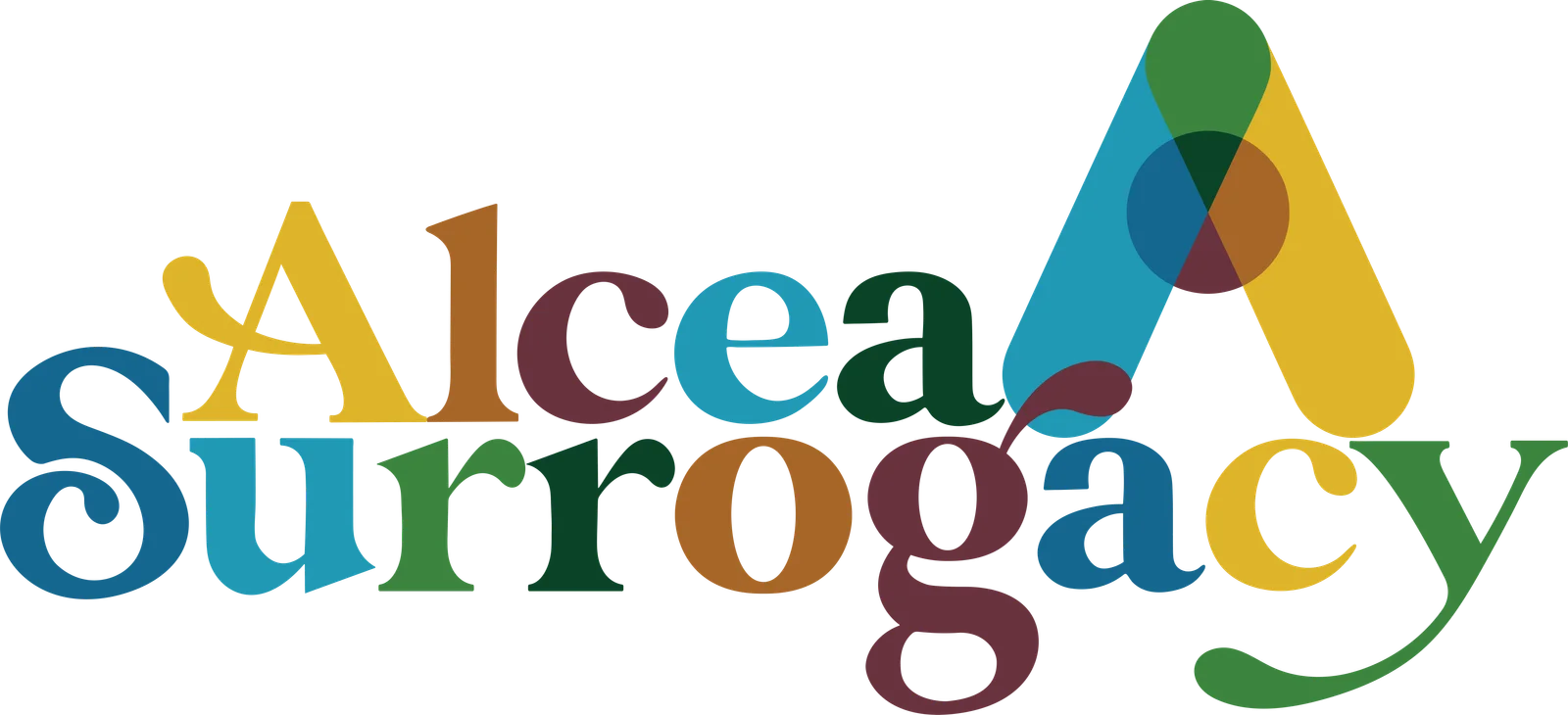a Personal Story by Madison
This is the fourth story in our Pass the Mic blog series featuring the voices of Black women who are part of the infertility community. Join us as we #passthemic, and please pass their stories on if you wish to share. Together, we can amplify these voices, vocalize and normalize infertility journeys in all communities and help bring people together.
She’s leaving home. (Bye-bye)
My dad is a bit of a nerd. He loves to learn the how-to, the explanations behind simple acts, and long discussions about interesting topics. In another life, he’d probably be a professor. He could spend hours breaking down a movie we’d just watched. He could never get tired of talking about technology and the newest updates my MacBook has. But he also really loves to break down lyrics in songs.
Some of my favorite childhood memories of my dad happened while listening to music in a car. We’d be waiting in the parking lot, my mom making some “quick” run into a grocery store neither of us wanted to step foot into, and he’d turn on his music. We’d sit there, seats leaned back as we settled into the long wait, and he would play one song for me every single time. “She’s Leaving Home” by The Beatles.

On one occasion, sitting in the parking lot of a Kroger, the sunset ending and the sky turning that dark blue before black, I can remember my dad turning down the song, asking me for my analysis, and saying, “Parents do get sad when their kids leave. I know I’m going to be sad. But, that’s the whole point. Family is about growing.”
He said it casually, as we watched my mom approach us with a shopping cart filled with far more than the toilet paper she had intended to get. He popped the trunk and got out to help her, and my brain tucked that little comment in. Holding onto it for dear life.
Family is about growing.
My beginning
I grew up in Lewisville, Texas. At a young age, I found myself dreaming about leaving the state and moving to the east coast. I dreamt of strutting down the streets of New York City in heeled boots and swinging a Prada bag (having no concept of the price of a Prada or the sting of heeled boots on New York pavement). I first thought I would be an actress, then I pictured myself as an editor for a fashion magazine, then considered being a personal shopper. I pretty much considered any job a possibility. What was not a possibility, however, was family law.
I first learned about family law through my mother. She’s been a paralegal in family law for as long as I can remember, and my early memories feature her, sitting in an office decorated with Christmas cards and pictures from grateful families and the smiling faces of adopted children. At the time, I was convinced the only way to make a baby was the “old-fashioned way” that we’d learned about in health class and adoption, which I’d learned from her. My mother soon informed me that that was not true. It was my first introduction into surrogacy and, at the time, it did NOT sound interesting—at least not career-wise.
In high school, while applying to colleges I remember being asked a lot about what I wanted to do with my life. At that time, I figured I would be a writer of some sort, maybe a journalist, maybe I really would get into editing. I found myself constantly flipping between different jobs that sounded interesting to me. Nothing that involved math or science, maybe something in the fashion industry, or maybe I’d be a businesswoman. It didn’t really matter—what mattered was the school.
Having still held on to my dreams of leaving Texas, I applied to schools all over the country. Some in California, some in New York, a couple in the south. After acceptances and rejections, my top choices ended up being between NYU and Colgate University. NYU was smack dab in the city, home to artists and actresses. It seemed like the best place to live out my heeled boot dreams and play in my own version of Gossip Girl. Colgate on the other hand was in the middle of nowhere, a small school that was hours from New York City and only had a few fast food places I was actually familiar with (a McDonalds, a Subway, and a Dunkin Donuts).
The only reason I knew about Colgate was because of my dad. He’d been an intelligent kid (who’d grown into an intelligent man) in an impoverished neighborhood in Houston, Texas. A Colgate rep had come to visit his school and encouraged him to apply. My dad, not having any knowledge about the financial aid process and knowing he would have no way to afford the school, never applied. But he never stopped thinking about this tiny school in New York surrounded by hills and trees. I grew up hearing about Colgate and I decided to apply, if only because it was a good school with a nice website.
When visiting New York, the plan was to visit Colgate’s campus first and then the next day, drive up to New York City and visit NYU. The day of our tour of Colgate, I slid on some jeans and a light jacket, laced up my sneakers, and prepared to let Colgate go, confident that NYU would end up being the place for me. It was a rainy day, and the tour guide provided us with official Colgate umbrellas. She made a joke that she hoped we were ready to walk as most of Colgate sat on top of a large hill. I, having hated any sort of exercise, prepared myself for the miserable uphill walk, in rainy weather, on a day where I needed a bit more than a light jacket.
I never expected to fall in love.
We looked at all of the academic buildings, danced across the quad, through different halls and dorms. At one point my dad, finally having visited the school he’d heard about when he was a little younger than I was then, leaned over and whispered to me.
“I can see you here. Can’t you?”
I could.
My journey to third-party reproduction
I graduated from Colgate in 2020. Thanks to the pandemic it was a small graduation. And by small I mean it was in my living room, with my mom cheering, my dad taking a picture of our TV as my name flashed across in the slideshow, as I sipped a mimosa and realized my undergraduate career was over.
At some point during my time at Colgate, I’d decided to go to law school. Something that pleased my dad (who always thought I would go) and surprised my friends (who’d always heard I would never go). I applied and got into Fordham University School of Law, where I am currently attending.
Now, at 23 years old, I have been asked over and over again what I want to do next. What area of law do I think I’ll end up practicing? What interests me?
Enter Alcea Surrogacy.
As I entered adulthood, I began to realize more and more how central my identity as a Black woman needed to be in my career. As I have gotten older, conversations about marriage and kids have become less and less hypothetical. More and more of my friends are planning weddings and having children. We are entering the workforce, and the future seems a lot closer than it did when we were 18.
When I began to seriously consider what I wanted my future to look like, I began to fear it. Not in the “I’m too scared to grow up” kind of way, but in the “as a Black woman I am afraid of what my future will be” kind of way. I started learning about some frightening statistics associated with Black women giving birth. I began to think about options I might have. Due to my mom’s line of work, I always thought I would adopt at some point, but I began to realize that outside of adoption—when looking at the numbers associated with surrogacy and egg donation, there is a complete lack of accessibility for Black women in third-party reproduction.
We don’t see ourselves in this field. Not just attorneys, but even so far as gestational carriers and egg donors. I began to realize more and more that most agencies seem all too comfortable with continuing the vicious cycle of white supremacy in family building. Agencies that don’t even talk about, let alone to, women of color. Black women are not being prioritized or considered. We are being swept under the rug. We are being ignored.
Realizing the issues of race and womanhood in third-party reproduction, made me realize how badly I want to be a part of it. Third-party reproduction is more than just connecting intended parents with potential carriers. It is more than just egg donation and crossed fingers. It is a delicate balance of hope, family, trust, and love. It is an incredible honor and responsibility to help someone, in whatever form that help may take, to grow their family.
I’m interested in third-party reproduction because it is about growing. All those years earlier, that memory of my dad leaned back in the driver’s seat, telling me that family is about growing has never meant more to me than right now. If family is meant to grow and evolve and change, how we make our families should too.
I’m interested in this area and learning more about it because it seems to act as a sort of intersection of everything I am interested in: sexuality, race, gender. As a Black woman who will surely continue to think about what my future family will look like, I have found myself more and more interested in how we as Black women grow our families. The tools we are given. The support we are given. The access we are given.
Looking towards the future
As I continue to learn about third-party reproduction, the laws that accompany it, and the families it helps, I continue to become more excited about the future of the industry and Alcea’s role in it. I became interested in surrogacy, egg donation, and alike because I am interested in providing more representation and help in the field to Black women like me. It is my hope that as the field grows, people are given more information, and third-party reproduction continues to get destigmatized, the space will continue to diversify. Black and brown couples, single parents, surrogates, donors, and others will be able to see themselves in different stages of the process. I hope to see Black attorneys, Black donors, Black surrogates, and Black families all become all the more common in this practice.
As I sit here in New York City, with “She’s Leaving Home” playing in the background, I am thinking about my parents. My dad who taught me about growth, and my mom who exposed me to this entire area, and I am so grateful. My only hope is that I can help others. In some small or large way, I hope whatever work I am able to do helps people to grow their families. I am incredibly excited about what my role in third-party reproduction will look like. And while I do not know exactly what I will do next or what my future looks like, whatever time I am able to spend learning and teaching more about third-party reproduction I will do so happily.

